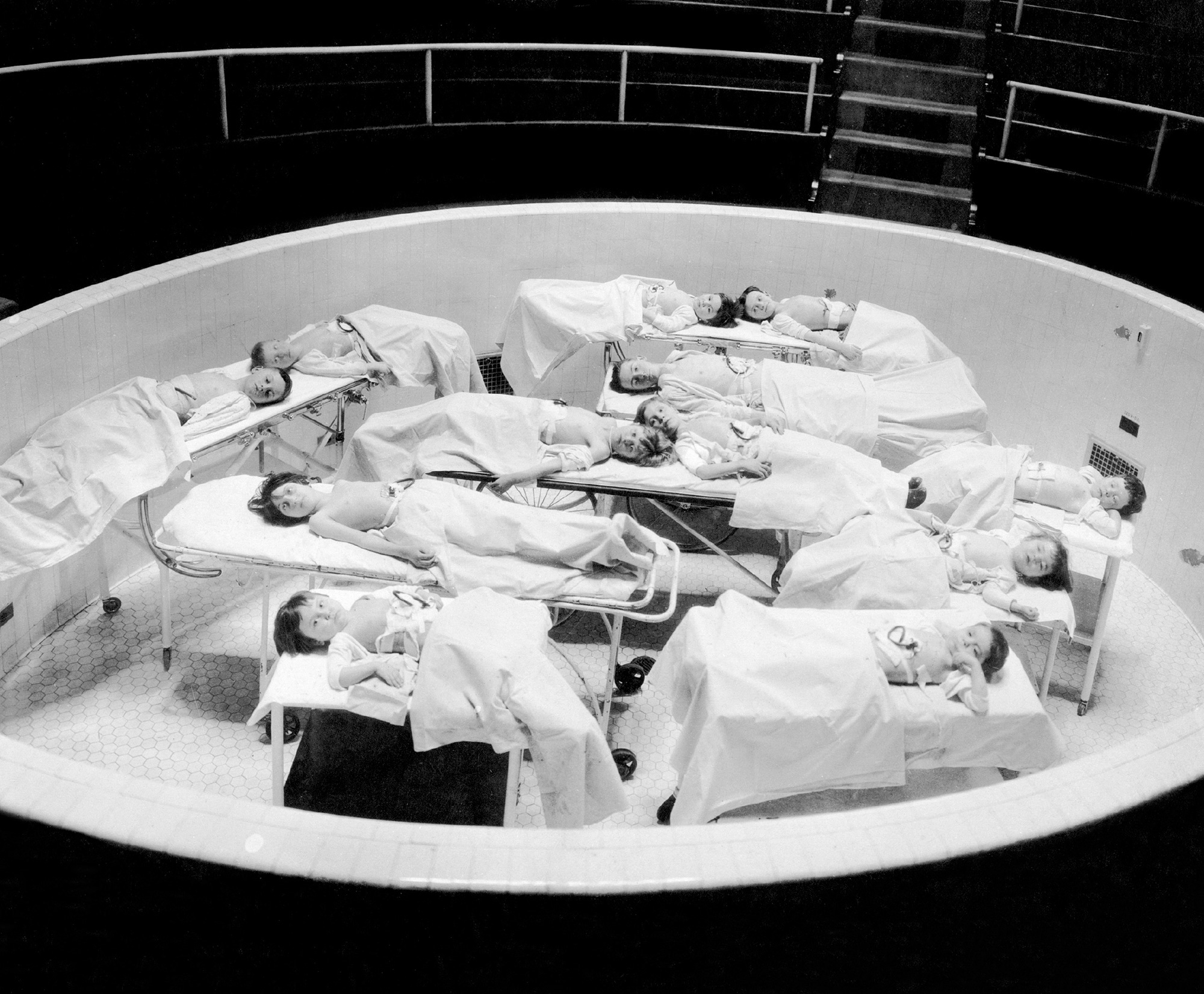Legend / The Surgeon
Our gang, before the final war
Wayne Koestenbaum
“Legend” is a column by Wayne Koestenbaum in which he suggests one or more possible captions for an image provided by the editors of Cabinet.

Before the final war, we lay together in a pit; we awaited our designated surgeon. The pit, like a swimming pool or gladiatorial theater, had no personality of its own. Our task was to supply the pit with character traits. Nor did the surgeon we awaited have a clear profile; he, too, suffered from a dense effacement. We were ten or twelve children, naked, under sheets, on hospital cots, with complicated medical equipment attached to our bellies. Pallid, like the longed-for surgeon, we participated in a culture of effacement, of supposedly salubrious blankness. Our blankness distressed us, as it had aggravated our parents; that’s why they’d abandoned us—left us in the care of the enigmatic surgeon, in a cold country, our pallor a national treasure, like haggis, featured in brochures (“The pallor of the victimized and half-naked children attracted Magi—proto-Situationists—in the Roaring Twenties”). Some of our gang—pale children awaiting the designated surgeon—would later become famous, even if “fame” was a category that didn’t survive the final war. (“Fame,” like “nachas,” “fetishism,” or “statutory rape,” became an antiquated concept, the province of Watteau scholars and rodeo fans.) Nonetheless, from our ranks arose the shining star of Francis Poulenc—not the French composer, but a different, abused, Aleutian maestro, whose compositions mixed Russian folk songs, artillery noise, and the reverb and kick drum borrowed from a popular American music once known as “house.” “Whose house?” we wondered, anticipating the moment when the surgeon would bring his stinging benediction. Whose house did we belong to, our guts waiting to be wrenched open by scalpels? In that era, we didn’t yet know about adult genitals; pornography had not yet become a staple of primary education. As we lay paralyzed in cots, we tried to forecast the shape and status of the surgeon’s genitals. Would they be round, square, horned, triangular, folded, dented, taped, forfeited, tripled, tainted, tattooed, torn, green, barbed, woebegone? Did we, too, have genitals, under dank sheets, or were our lower regions effaced, like the personality and figure of the anticipated surgeon? Were our genitals mere hunches, superstitious murmurings? Stupid of us to depend on the surgeon to answer these Pentateuchal questions! Stupid of us to beg the surgeon to stop the liturgical clock! Duration, in our asylum pit, resembled the space between 1939 and 1940, when one Mickey Rooney film decided to become a slightly altered Mickey Rooney film, with an ending that deprived its star of mercy, testosterone, ethnic heritage, and elbow grease. Duration—or la durée, as Mickey’s friend Henri Bergson put it—was our curse; we were “durational pipsqueaks,” lying flat in cots, as if placed there by a director who represented a torrid compromise between Busby Berkeley and Robert Bresson. Whorls of a rose we formed weren’t Rilke’s, not by a long shot.